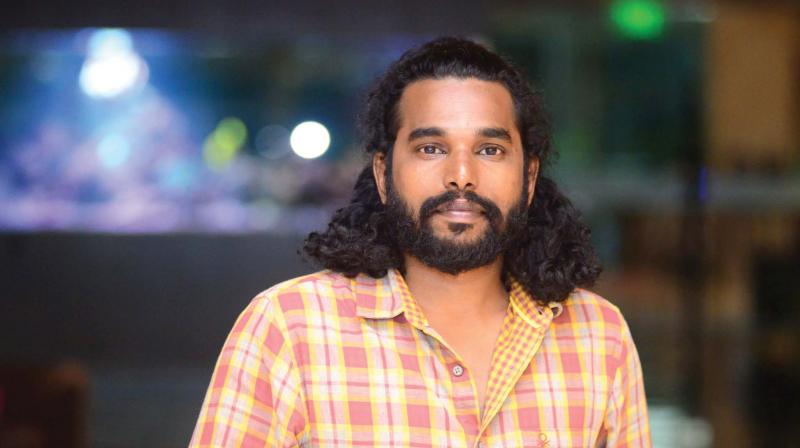I wouldn't have made Sujatha without Manju: Phantom Praveen
Director Phantom Praveen pays a heartfelt tribute to mothers through the film Udaharanam Sujatha

Praveen stands at the bottom of the stairs, turning this way and that, talking, enquiring, giving directions. It’s 12 p.m. on Thursday, the moment he has been waiting for – the first film he made is going to start playing at the Padma Theatre in Kochi. With him are some faces, familiar ones, of those who have seen him through these past many months – Joju George, actor and co-producer of the film, Gopi Sunder, who composed lovely songs for him, and Anashwara Rajan, the young girl who became the daughter in his film, Udaharanam Sujatha. The mother – Sujatha — is Manju Warrier.
“It had to be someone you know is a poor nice woman as soon as you see her, someone you’d like right away. And the character has a lot of acting possibilities. I knew Manju chechi will do it most beautifully. If she hadn’t been in, I wouldn’t have made the film,” Praveen says. Phantom Praveen is the name that scrolls at the end of the credits. A name that’s stuck with him for a long time, one he is identified by. Phantom traces it back to his schooldays, also the time he realised he wanted to make films one day. “It was not an easy dream to have back then, like how you have now a digital camera to film and YouTube to upload. I had no idea except that my dad – Joseph Augustine – was a guitarist and my connection with art begins there,” he says.
Phantom became active in school plays, read books on films. When he reached college – his degree was in physics – he found kindred mates, in love with cinema. He did his PG in Film and Television and made a short film called Gallows. The man who played his hero – Praveen Michael – introduced him to director Martin Prakkat, who would go on to become Sujatha’s co-producer with Joju. Martin also co-wrote the script with Naveen Bhaskar, who had also scripted ABCD. “I knew them all since ABCD, for which I assisted.” He worked with Martin again for Charlie, with James Albert in Mariyam Mukku, with Siddharth Siva in Kochavva Paulo Ayyappa Coelho and Sakhavu. It was during the last schedule of Sakhavu that Phantom decided to proceed with Sujatha.
He explains,“It was important to tell this story, to at least acknowledge these women who struggle day and night to make ends meet. It is about housemaids and part-time workers, and their lives and dreams. But I don’t present Sujatha’s story with a lot of drama, it is about the small joys and the emotions.” All he has to say about the film scrolls at the end of it — God’s biggest gift for the world is mother.

